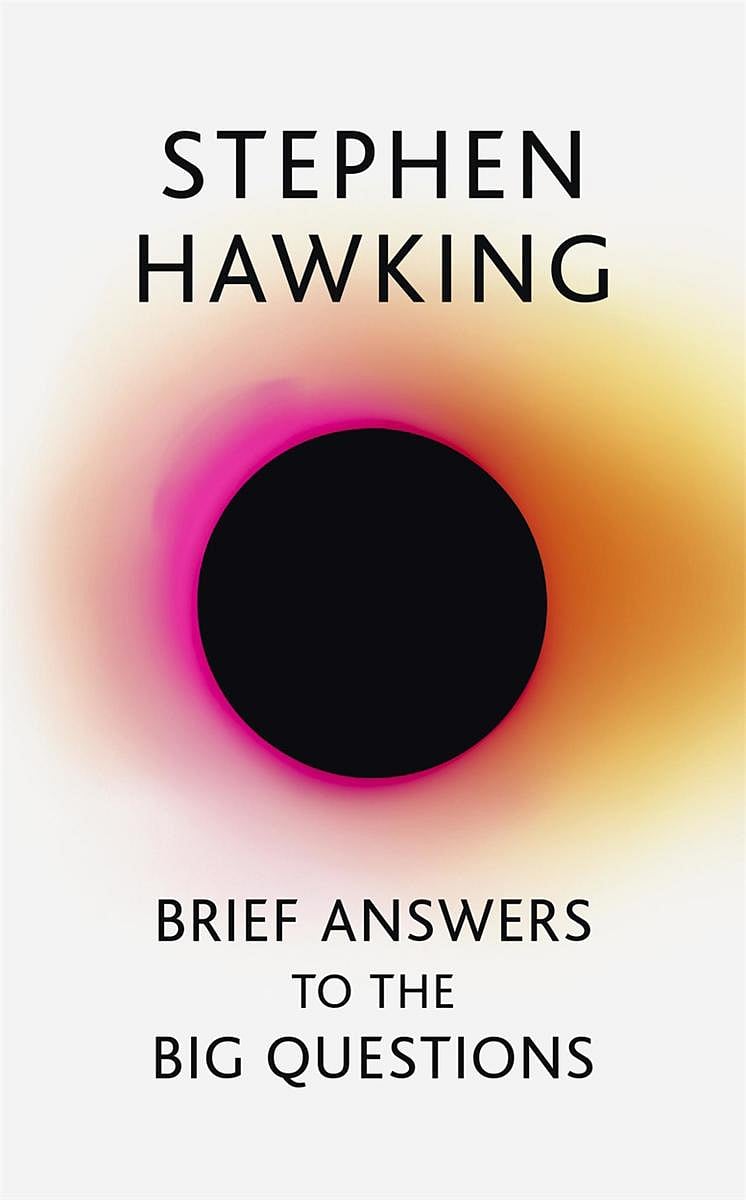
A brilliant mind, a warm, humorous personality, a genius at demystifying physics and cosmology for the common man — trapped in his own body and supported by advanced voice generation software to communicate. Stephen Hawking was one of the most recognised figures on the planet. The world mourned when he passed away last year.
As much as for his scientific intellect, Hawking was known for the popular science books he wrote, the most famous of them being A Brief History of Time. At the time of his death, he was working on a book to explain some of the broadest questions asked today. This book has now been published posthumously as Brief Answers to the Big Questions.
The title is accurate. This is a short book, just over 200 pages. It’s a series of essays, each focused on one question. Is there God? Can we foretell the future? How did the universe begin? To each of these, Hawking brings his characteristic flair and humour, and answers them from a physics point of view. There are no big surprises here for readers in the answers. However, the reason for those answers is explained with the flair that only Hawking can bring. Each of these essays is under 30 pages, but covers a huge amount of ground, giving you a refresher on the history, research trends, and current theses around the topic, without quite overwhelming.
It is a testament to Hawking’s ability that the book has no equations, and no diagrams. It works purely on the basis of Hawking’s clear words. He doesn’t shy away from explaining any of the deep concepts involved, but he does it in a way that makes your average reader feel smart.
As an active research scientist, Hawking also talks of how the theory was developed, and where it’s probably going next. So we get excellent primers to String Theory, Relativity, Multi-dimensional space, and a lot more.
However, the essays are never about these theories alone, they focus on the applicability of the relevant theory to the question at hand. In its clarity and plain speaking, the book brings out just what was special about Hawking itself.
Lest one thinks that writing lucidly is not a big deal, one has only to read the introduction of the book, written by another renowned physicist, Kip Thorne. Even in that brief note, Thorne tries valiantly but never approaches the clarity that Hawkings reaches, and maintains, throughout his work.
Hawking is helped by his ability to give just the right simile to explain complicated concepts. When explaining Planck’s research that energy is available in quanta, he’ll say, “It’s a bit like saying that sugar needs to be bought in kilogram packs in the supermarket, and not loose.”
In another place he’ll say, “Energy is rather like money. If you have a positive bank balance, you can distribute it in various ways.” And then he’ll deftly tie up the example to the concept at hand, making it crystal clear.
Many more people have heard of Hawking than have actually read his work. He’s been a presence in the public mind, as an accessible, yet extremely smart scientist, always up for some fun. What other physicists do you know of who have appeared in The Simpsons cartoons, in Pink Floyd’s songs, on Star Trek, in talk shows, even as memes? Single-handedly he made the frontiers of physics popular and understandable. But even the social media presence pales next to the scientific contributions he made over his long career: understanding the physics of the beginning of the universe, predicting the behaviour of black holes, refining our understanding of the universe. This book is almost a summary of all the work he’s done, a refresher to Hawking the scientist.
The last few chapters strike a warning note about the dangers facing our planet and us as a species. Global warming and environmental degradation have been spoken of in the abstract for too long, but the dangers are real and the effects are already being felt.
Hawking makes it very clear that if we continue on our present course, we are doomed. It is inevitable, he feels, that we expand beyond planet Earth and find ourselves multiple homes in the universe. Whether or not the Earth remains habitable by then, is up to us.
If we are to survive as a species, we need to adopt a scientific temperament and a spirit of inquiry. We have allowed dogma and intolerance to take over our social sphere, leaving little space for the truly magnificent strides that are being made in science by men like Hawking. Through this book, Hawking leaves behind a gift: the awareness that science is interesting, that science matters, and that science indeed has answers to the big questions. We owe it to ourselves to read and understand his work.